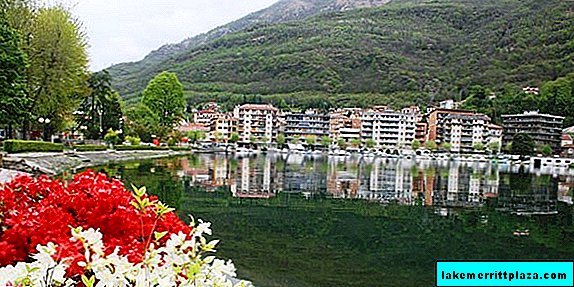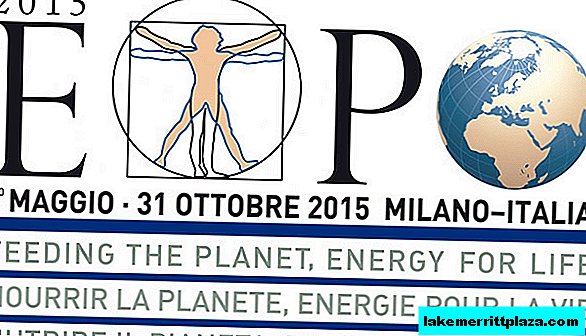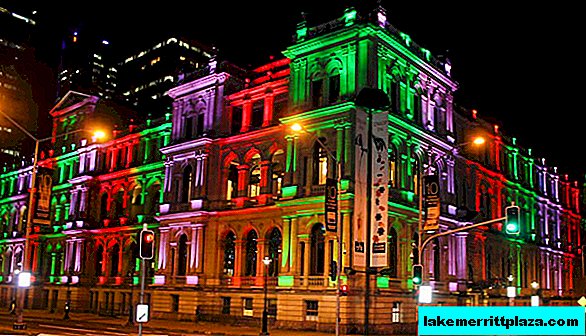The small but very beautiful town of Sant'Agata de Gothi with its characteristic narrow streets and medieval houses is one of the favorite and visited by tourists. It is located between Naples and Benevento on the steep bank of the Martorano River. Nearby is a giant hill, similar to a pyramid, perhaps there are ancient artifacts.

Sant'Agata de Gothi - a fabulous stone city at the foot of Monte Taburno, photo by Grishnakh
About city
The city of Sant'Agata de Goti is like a stone archipelago in the waves of the emerald sea. It stands in a green mountain valley, at the foot of the peak of Monte Taburno, in the Campania region. The center of the town consists of closely spaced crescent-shaped buildings. The gray houses, hanging in succession over the steep bank of the Martorano River, resemble swallow's nests. Medieval buildings that grew directly from the rocks above the gorge form a fabulous fairytale landscape.
On the site of Sant'Agata in ancient times stood the city of Saticul, which belonged to the Italic people - the Samnites. The Romans captured the city in 315 BC Later, Sant'Agata was owned by the Huns, Vandals, Lombards, and Normans. The city passed under the authority of the pope in 1230.
The population of the commune city today is about 12,000 people. The modern part of Sant'Agata de Gothi is no different from the new quarters of many other provincial Italian cities.

Streets of Sant'Agata de Gothi, photo by Diana Robinson
In the historical center there are narrow cobbled streets. Cars drive here - car traffic is allowed, and unusual tourists hardly manage to miss the transport. The core of the city is divided in two by Via Roma. In the architecture of Sant'Agata de Gothi, an abundance of arches catches your eye: arched arches connect the houses, pass under the buildings, crown the entrance openings.

Patron of the city - Bishop Alfonso Liguori, photo Giovanni-Vastano
The patron saint of the city is the canonized bishop Alfonso Liguori. The statue of the saint, the townspeople overshining the cross, stands on a massive pedestal, on the cozy Umberto I Square.
Sights

Cathedral, photo by Giovanni-Vastano
The City Cathedral (Duomo di Sant'Agata de 'Goti) faces the main facade of the small square of Saint Alfonso. The Duomo was founded in 970; over the centuries of existence, after a devastating earthquake and many reconstructions, the cathedral completely changed the original Romanesque appearance.

Church of Santissima Annunziata
The gothic church of Santissima Annunziata (Chiesa del Santissima Annunziata) on the Annunciation Square has existed since the 13th century. The frescoes of the Last Judgment of the 15th century are preserved in its decoration.

Church of St. Mennato
The facade of the church of St. Mennato (Chiesa di San Mennato) (11th century) with an original Romanesque archivolute decorated with lion heads extends onto the same square. The church has preserved the mosaic floors of Cosmatesco made in the XII century.

Church of San Angelo Munkulanis
The three-nave basilica of San Angelo Munkulanis (Chiesa di Sant'Angelo in Munculanis) was built in the era of the Lombards on the foundation of a Roman temple. During the last restoration of the building, a medieval crypt with burials was discovered.

Church of St. Francis, photo Giovanni-Vastano
The Church of St. Francis (Chiesa di San Francesco) was founded in 1282, and in the XVIII century it was rebuilt in the Baroque style. Frescoes of the 15th century are also preserved in its interior.

Church of Santa Maria di Costantinople, photo napoligaypress
The church with a soft pink facade of Santa Maria di Costantinopoli (XVIII century) was built on the ruins of the chapel of St. Bartolomeo de Ferraris, near the monastery of the Redemptorist sisters.

Ducal Castle, photo by Marilena
Of the "secular" sights of the city, the ducal castle (Castello ducale) of the Lombards was preserved. It was reconstructed in the XIX century as a ducal palace and lost its towers. On the lower level of the castle you can see the restored frescoes by Tommaso Giaquinto.

In the ancient Roman aqueduct, photo by Giovanni-Vastano
On the southeastern outskirts of Sant'Agata de'Gothi, an ancient Roman aqueduct has been preserved, from which a beautiful panorama of the city and its surroundings opens.
The country's Ministry of Tourism has awarded Sant'Agate an honorary badge of Bandiera arancione, the most comfortable Italian city for tourists with a population of up to 15,000.

View from the aqueduct, photo by kiki follettosa








